Single digit growth boosts Apple's share of US PC market to 8.7 percent
But competing firm IDC released numbers that showed a very different picture. Their report said Apple had an estimated year-over-year decline of 12.4 percent in shipments.
Gartner
The preliminary data has Apple garnering an 8.7 percent share of the U.S. computer market for the three-month period ended June, good enough for the Mac maker to maintain its ranking as the nation's fourth largest computer maker.
Apple next week will announce finalized figures for the same time frame, which coincides with its third fiscal quarter of the year. If Gartner's data is of any indication, the company is likely to post respectable single-digit growth in U.S.-based Mac given the challenging economic backdrop.
The Cupertino-based company's performance during the second calendar quarter also signals a turnaround from the first quarter, when the year-over-year comparison saw Mac shipments decline a little over 1 percent. From January to March, Apple managed to grab 7.4 percent of U.S. sales.
Overall, 16.4 million computers were sold in the U.S. during the second quarter, with 1.4 million of those being Macs. The number one vendor was Dell, which saw a massive 18.7 percent year-over-year decline. Nipping at its heels in second place was Hewlett-Packard, which actually topped Dell in the first quarter of year, but now trails by just a fraction of 1 percent.
Meanwhile, the biggest growth spurt came from netbook maker Acer, which saw year-over-year sales skyrocket 74.2 percent. The next nearest company, in terms of growth, was Toshiba with 22.5 percent. Acer and Toshiba ranked third and fifth, respectively, in U.S. market share.
Preliminary U.S. PC Vendor Unit Shipment Estimates for 2Q09 (Thousands of Units) | Source: Gartner
While an overall shrink of 1.2 percent in the U.S. might be seen as bad news, Gartner had predicted that the market would see a 12 percent slide.
"Mini-notebooks aside, some vendors had very aggressive pricing of regular mobile PCs below $500 at U.S. retailers," said Mikako Kitagawa, principal analyst at Gartner. "Aggressive pricing determined the winners and losers for market share gains in the U.S. consumer market."
Globally, the PC market saw a 5 percent decline, also beating Garter's June estimate of a 9.8 percent slide. A total of 68.1 million units were sold in the second quarter.
Worldwide, Hewlett-Packard was king, with 19.6 percent of the total market. Apple does not appear among the top five global computer manufacturers.
“Though the market was still in decline, the better than expected results can be interpreted as a small sign of a PC market recovery in terms of shipment volumes in some regions," Kitagawa said. "PC shipments in Asia/Pacific and the U.S. were better than our expectation, while shipments in the Europe, Middle East and Africa (EMEA) region indicated on-ongoing weakness.â€
IDC
In addition to the 12.4 percent Q2 decline, IDC's preliminary results showed Apple with a lower market share. The report states Apple held a 7.6 percent market share in terms of shipments, ranking the Cupertino, Calif., company fifth behindDell, HP, Acer and Toshiba, in that order.
The report said Apple shipped a total of 1.2 million computers for the quarter.
In the U.S., IDC estimated an industry-wide 3 percent year-over-year drop, slightly worse than the Garter estimate.
"Ongoing healthy volume through Retail spurred Portables to exceed forecasts, but that was offset by Commercial sluggishness and Desktop volume below expectations," the IDC says of American shipments. "Dell regained the lead by a small margin, but remains hampered by slow commercial spending."
IDC said worldwide shipments declined 3.1 percent. That number was, like Garter, better than expected. The firm had predicted a decline of 6.3 percent for Q2.
“These results are a very positive indicator for the second half of the year,†said Loren Loverde, program director for IDC’s Tracker Program. â€We are seeing continued demand from consumers and limited impact from supply chain factors such as inventory balancing. New product launches in the second half of the year combined with seasonal growth and greater economic confidence resulting from factors such as government stimulus, a more liquid housing market, relatively stable stock market and interest rates, and progress in the auto and financial industries, should support the expected return to growth by year-end.â€
 Sam Oliver
Sam Oliver



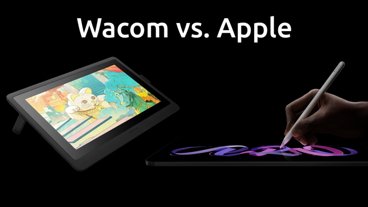
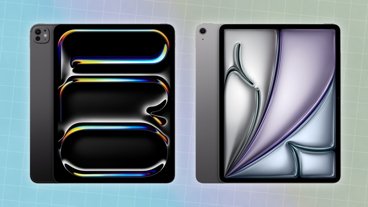
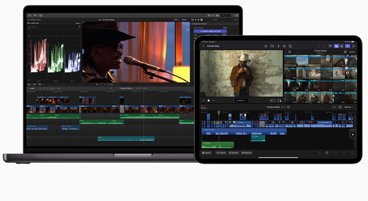
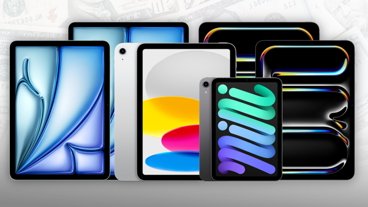







 Malcolm Owen
Malcolm Owen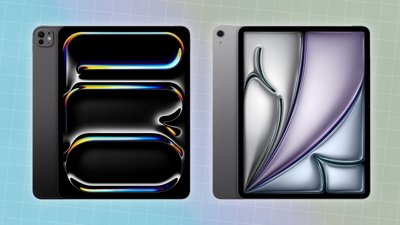
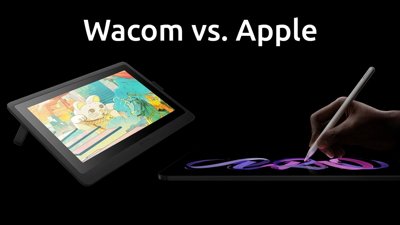
 Amber Neely
Amber Neely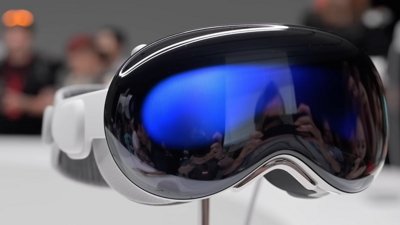

 Marko Zivkovic
Marko Zivkovic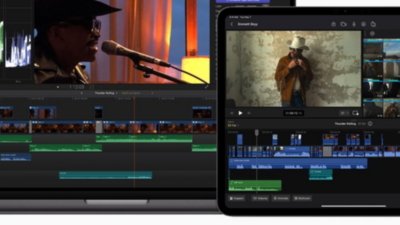
 David Schloss
David Schloss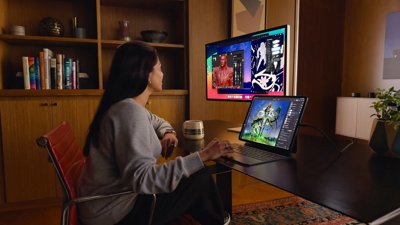
 Wesley Hilliard
Wesley Hilliard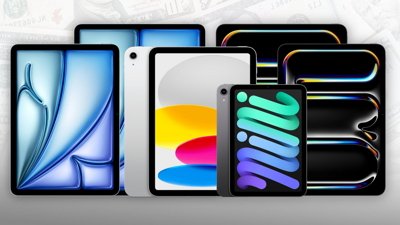
 Mike Wuerthele and Malcolm Owen
Mike Wuerthele and Malcolm Owen
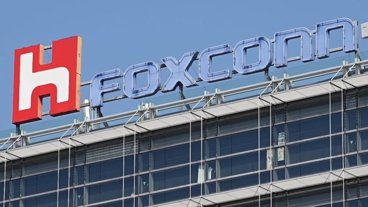








38 Comments
If Apple insists on charging a premium for its Macs it needs to make sure its ads tell why OS X is so good and worth the extra money. Otherwise people just compare the hardware only. Apple's Mac ads seem to just give the impression Macs are better looking
If Apple insists on charging a premium for its Macs it needs to make sure its ads tell why OS X is so good and worth the extra money. Otherwise people just compare the hardware only. Apple's Mac ads seem to just give the impression Macs are better looking
I wouldn’t say that. Their ads barely have a pic of a Mac and that is at the end of the ad for a second. The “I’m a Mac” ads compare the benefits of the whole widget.
It would be nice to show the actual OS but it may be hard to have a commercial that illustrates those benefits in under 30 seconds. Eventually they’ll have to retire the “I’m a Mac” ads.
Cheaper Mac Pros, iMacs, Mini (over priced about $100) would have made it much higher.
Add in a subsidized Mac Net (netbook) and the numbers would have been through the roof.
If Apple insists on charging a premium for its Macs it needs to make sure its ads tell why OS X is so good and worth the extra money. Otherwise people just compare the hardware only. Apple's Mac ads seem to just give the impression Macs are better looking
Cheaper Mac Pros, iMacs, Mini (over priced about $100) would have made it much higher.
Add in a subsidized Mac Net (netbook) and the numbers would have been through the roof.
Since they must include shitty acer devices which are really junk . Then of course market share is skewed/
BUT to all you dolts.
why don't we add the i phones sales into the overall totals since there better computers than acer makes ??
We have two true facts to consider.
FIRST OFF What is apple inc. true market share where they choose to compete ??? $999 plus market .
2ND OFF>> And since apple devices last longer and most of the software is included lets pro-rate thier true daily cost of owning an apple over an average lifetime of 3.5 yrs per machine. Let compare apples to apples / and we would minus out the empty dell boxes that run off servers.
Go apple
If Apple insists on charging a premium for its Macs it needs to make sure its ads tell why OS X is so good and worth the extra money. Otherwise people just compare the hardware only. Apple's Mac ads seem to just give the impression Macs are better looking
Really? If that's the case, shouldn't their numbers be declining, by comparing their system hardware with clones?
Sorry, but family members and visitors at retail stores where population density is high view the systems, third party software, and OS X and are slowly moving to the realization that it's worth the price.